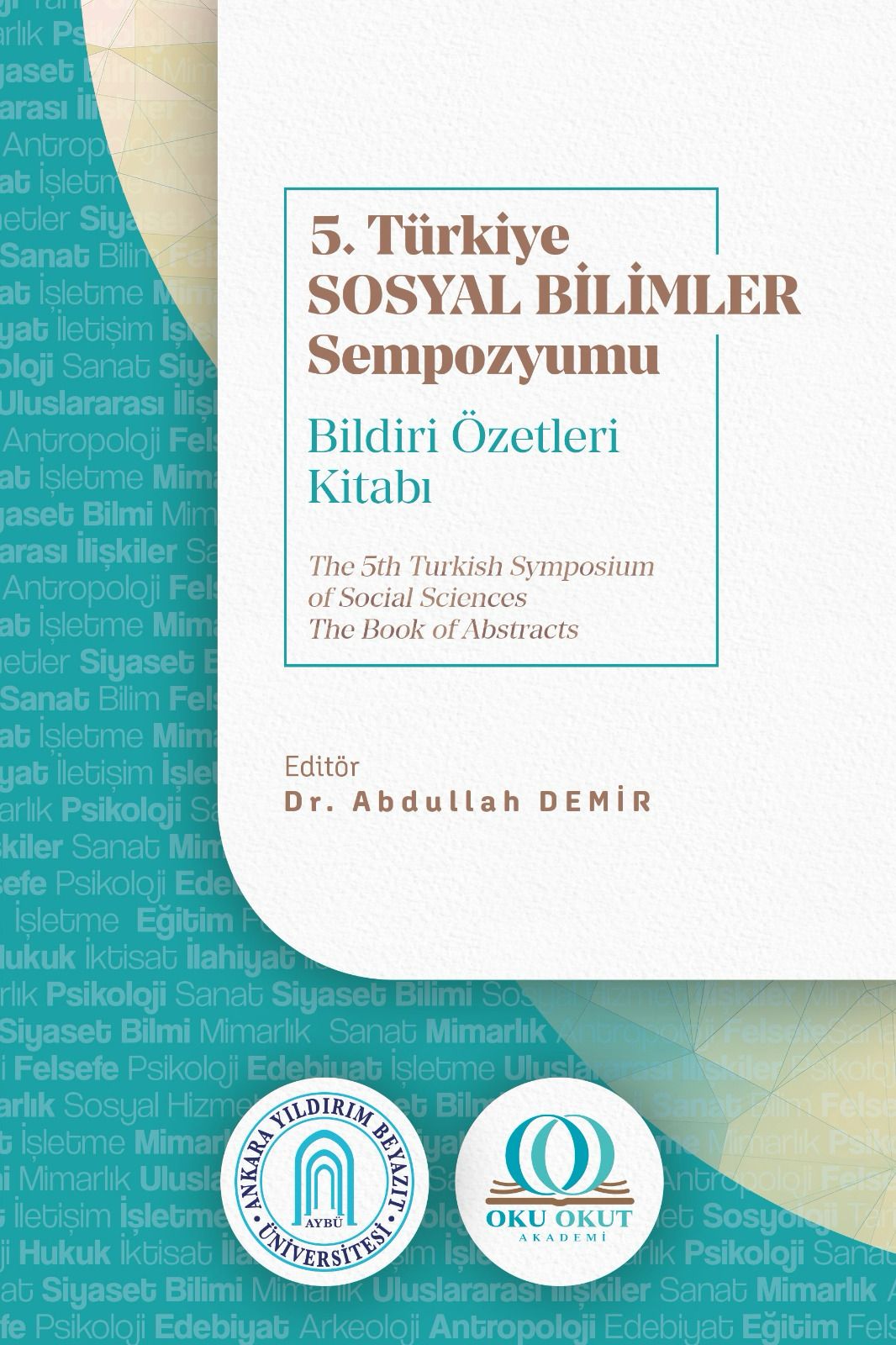Loneliness in Crowds: The Social Forms of Isolation in Zygmunt Bauman’s Sociology
Kalabalıklar İçinde Yalnızlık: Zygmunt Bauman Sosyolojisinde Yalnızlığın Toplumsal Biçimleri
While ideals of individualization, freedom, and autonomy in modern societies seemingly offer a space for emancipation, a deeper analysis reveals that these processes often lead to social fragmentation, relational loss, and new sociological problems such as loneliness. While elucidating this contradictory process within the framework of the concept of liquid modernity, Zygmunt Bauman states that modern individuals are now moving away from fixed identities, permanent relationships and continuous forms of belonging. In this context, individuals, although seemingly having various communities and connections, actually live in “lonely crowds.” This study aims to analyze the phenomenon of modern loneliness within Bauman’s sociological perspective by examining its social manifestations in the contexts of leisure, consumer culture, and digital spectacle. The central research question can be formulated as follows: Despite increasing digital connectivity and the appearance of social abundance, why do modern individuals experience a deeper sense of loneliness, and how can this be interpreted through Bauman’s theoretical framework? The objective of this study is to demonstrate that the experience of loneliness, often perceived as individual, is in fact a social outcome stemming from the loss of relational depth that coincides with the ideal of freedom promoted by modernity. In this regard, leisure is no longer a space for rest but a performative arena where individuals stage their identities, display their social capital, and rearticulate their quest for belonging. In this process, the individual becomes not only a consumed figure, but also a socially isolated being, stripped of deep emotional ties while striving for visibility. Consumption patterns and social media interactions, while increasing one’s visibility, simultaneously produce symbolic processes that foster loneliness. The study adopts a qualitative research method and conceptualizes loneliness not as a psychological feeling, but as a socially constructed experience. By framing loneliness as a sociological outcome shaped by digitalization and consumer culture in modern society, this research offers an original and timely contribution to the literature. The fact that the Turkish Language Association selected the term “lonely crowd” (kalabalık yalnızlık) as the word of the year in 2024 also underscores the social urgency and contemporary relevance of the topic.
Modern toplumlarda bireyselleşme, özgürlük ve özerklik idealleri yüzeyde bir özgürleşme alanı sunarken derinlemesine bakıldığında toplumsal çözülme, ilişkisel yitim ve yalnızlık gibi yeni sosyolojik sorunlara yol açmaktadır. Zygmunt Bauman bu çelişkili süreci akışkan modernite kavramı çerçevesinde açıklarken modern bireylerin artık sabit kimliklerden, kalıcı ilişkilerden ve süreklilik taşıyan aidiyet biçimlerinden uzaklaştığını belirtir. Bu bağlamda bireyler, görünürde çeşitli topluluklara ve bağlantılara sahip olsa da aslında “yalnız kalabalıklar” hâlinde yaşamaktadırlar. Çalışmanın konusu Bauman’ın sosyolojik perspektifinden modern yalnızlık olgusunun boş zaman, tüketim kültürü ve dijital gösteri bağlamında aldığı toplumsal biçimlerini anlamaktır. Çalışmanın temel problemini ise şu soruyla özetlemek mümkündür: Modern birey, artan dijital bağlantılara ve görünür kalabalıklara rağmen neden daha derin bir yalnızlık deneyimi yaşamaktadır ve bu durum Bauman’ın sosyolojisinde nasıl bir kuramsal çerçeveye sahiptir? Çalışmanın amacı bireysel gibi görünen yalnızlık deneyiminin modernliğin sunduğu özgürlük idealiyle eşzamanlı gelişen ilişkisellik yitiminden kaynaklanan toplumsal bir sonuç olduğunu ortaya koymaktır. Bu bağlamda boş zaman, yalnızca bir dinlenme alanı olmaktan çıkarak bireyin kimliğini sahnelediği, sosyal sermayesini görünür kıldığı ve aidiyet arayışını yeniden ürettiği bir gösteri zeminine dönüşmektedir. Bu süreçte birey yalnızca tüketilen bir figür olmakla kalmayıp görünürlüğünü sahnelerken içsel ilişkiden ve derin bağlardan soyutlanmış bir toplumsal varlığa da evrilmektedir. Tüketim kalıpları ve sosyal medya etkileşimleri, bireyi görünür kılarken aynı anda yalnızlaştıran sembolik süreçler üretmektedir. Çalışmada kullanılan yöntem nitel araştırma yöntemidir. Yalnızlık olgusu bireysel değil toplumsal olarak biçimlendirilmiş bir deneyim olarak ele alınmaktadır. Çalışma yalnızlığı bireysel bir duygu olmaktan çıkararak modern toplumda dijitalleşme ve tüketim kültürüyle şekillenen ilişkisel çözülmenin sosyolojik bir sonucu olarak ele alması bakımından literatüre özgün ve güncel bir katkı sunmaktadır. Nitekim Türk Dil Kurumu’nun 2024 yılında “kalabalık yalnızlık” ifadesini yılın kelimesi olarak belirlemiş olması, konunun yalnızca akademik değil toplumsal düzlemde de yakıcı bir karşılığa sahip olduğunu göstermektedir.

Copyright (c) 2025 Esra Güler Ayhan (Yazar)
This work is licensed under a Creative Commons Attribution-NonCommercial 4.0 International License.
The CC BY-NC 4.0 license permits sharing, copying, and reproducing the work in any medium or format; it also allows adapting, transforming, and building upon the material, provided that appropriate credit is given to the original work and that it is not used for commercial purposes.
Article Information
- Article Type Religious Studies, Sociology of Religion
- Submitted July 31, 2025
- Accepted August 1, 2025
- Published November 29, 2025
- Issue The 5th Turkish Symposium of Social Sciences
- Section Religious Studies, Sociology of Religion
Güler Ayhan, Esra. “Loneliness in Crowds: The Social Forms of Isolation in Zygmunt Bauman’s Sociology”. Turkish Symposium of Social Sciences 5 (November 29, 2025). https://doi.org/10.55709/tsbsdergisi.907






